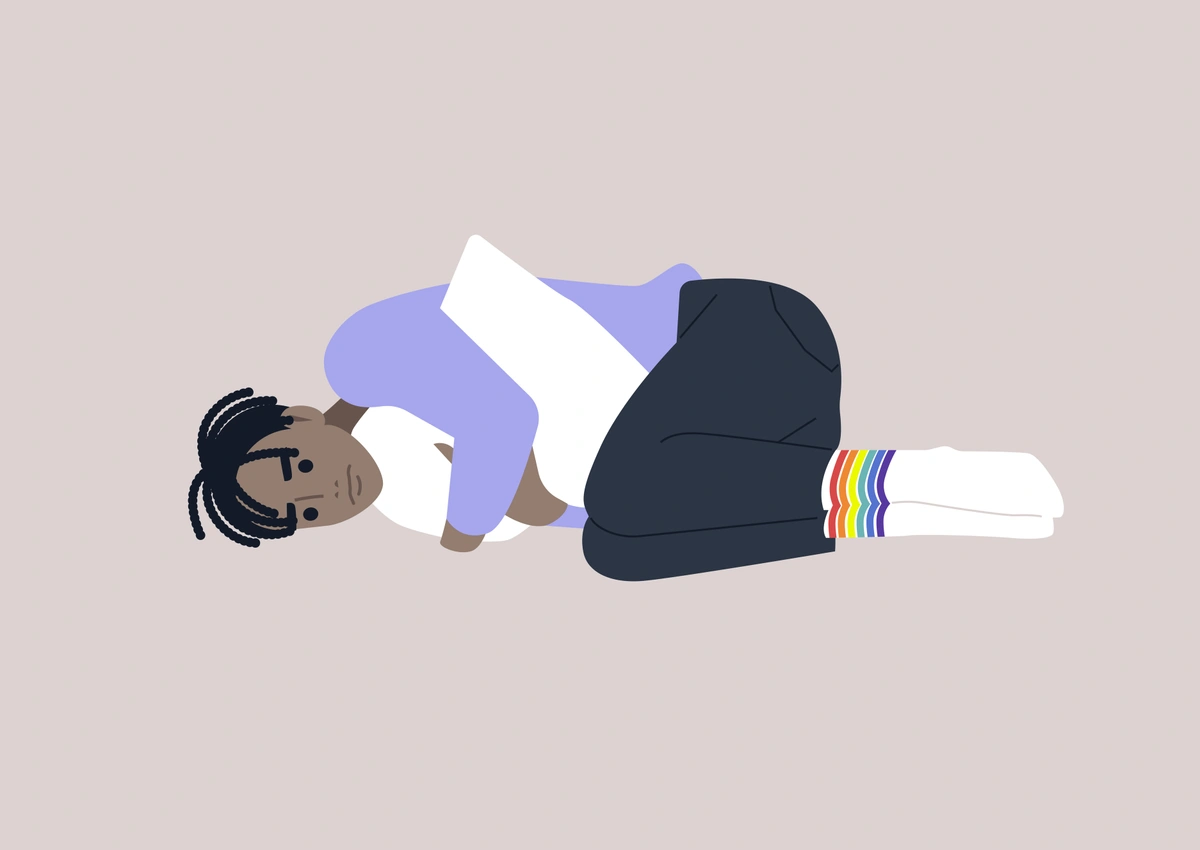Persistent Depressive Disorder (Dysthymia)

Persistent Depressive Disorder (Dysthymia)
Dysthymia, also known as Persistent Depressive Disorder, is a mood disorder and a type of depression. Millions of people worldwide suffer from some form of depression, which may be caused by a genetic predisposition, current or past stressful situations, and/or other illnesses that increase the risk for depression.
In the case of Dysthymia, the symptoms of depression have persisted continuously for at least two years or more. In contrast, Major Depressive Disorder is characterized by episodes of depression that occur between periods of wellness. A period of wellness is defined as two months or more where a person does not experience clinically significant symptoms of depression.
Dysthymia is categorized as either mild, moderate or severe, and clinicians also consider whether the condition was one of an early onset (occurring before age 21) or a late onset (at age 21 or older).
Different depression, different treatment
There are three common types of depression, and treatment usually looks somewhat different for each kind:
- Dysthymia: having ongoing depressive symptoms
- Major Depression, Single Episode: having had one period of moderate or severe depression
- Recurrent Major Depressive Disorder (Recurrent MDD): having two or more periods of moderate or severe depression
Doctors may characterize someone’s specific case of depression as “treatment-resistant” depression (TRD) when any of the above three diagnoses does not improve after being treated with at least two different categories of antidepressant medications. Some experts estimate that about 40 percent of adults with dysthymia have TRD. There are some forms of treatment that are only approved for TRD.
With dysthymia, a doctor might recommend treating it like a chronic illness, where medication or therapy could be helpful for the long-run rather than just a short duration. Fortunately, there are many effective treatments for dysthymia, including psychotherapy and antidepressant medications. Such treatments usually improve a person’s quality of life.
What it looks like
It is important to know the common symptoms of dysthymia. Signs of dysthymia may include the following:
- Having a sad mood and loss of interest in normal activities
- Sleeping much more, or much less, on most days
- Eating much more or much less than in the past, causing an unintentional weight gain or loss
- Having persistently low self-esteem
- Experiencing fatigue much of the time
- Having difficulty with concentrating most of the time
- Having feelings of hopelessness
Some describe depression as feeling like their “tank” is empty. Others report feeling sad or feeling insignificant - like other people are looking right through them. Many people with dysthymia stop getting pleasure from the things they used to find enjoyable, and they have trouble imagining being happy again.
Sometimes dysthymia is difficult to diagnose because the longstanding symptoms may be misperceived as part of the person’s personality rather than resulting from a form of depression. This is especially true if the dysthymia has been present for many years. It is also important to note that people with dysthymia may develop episodes of Major Depressive Disorder (MDD).
Causes of dysthymia
In the past, doctors have explained conditions such as depression as a “chemical imbalance.” This may make it seem like depression is similar to a vitamin or mineral deficiency. We now understand dysthymia is more complicated, and it’s unclear whether an imbalance causes depression, depression causes an imbalance, or depression is caused by other factors entirely. And what’s more, there is disagreement over whether an individual is born with an imbalance or an imbalance is triggered by something else, such as puberty, the environment, stress, or other factors. Most likely, it is a combination of multiple interrelated factors.
In support of a “chemical imbalance” being a cause, medications that act to increase brain chemicals such as serotonin, dopamine, or norepinephrine often make depressed people feel better. This is why antidepressants help many people: they increase the levels of one or more neurochemicals.
Depression may also be genetic, and health care providers may say that the disorder “runs in families.” If an individual’s parent or sibling has depression, it puts that individual at increased risk for having an episode.
In addition, unmarried people have a higher rate of dysthymia than married people. People who have had high levels of adversity in their childhood also have an increased risk for dysthymia, as do people who were mistreated or abused as children. Childhood emotional abuse or neglect are key risk factors for the development of dysthymia in adulthood.
Researchers are constantly studying the causes of depressive disorders as well as potential ways to mitigate the effects of dysthymia and other forms of depression.
Outlook
Living with dysthymia presents unique obstacles, and finding the best treatment for such depression can take time. The majority of people accurately diagnosed and treated for dysthymia often gain transformative results. In fact, people who have received medication or therapy for their depression often say that starting treatment was one of their most important positive decisions.
Having dysthymia is nobody's fault
Many people with dysthymia may have blamed themselves for years for not being able to “shake” their feelings. But, depression is no one’s fault. And, most of the time, it is highly treatable. Blaming oneself for depressive symptoms is like blaming oneself for having brown eyes or blonde hair. Depression is not the individual’s fault.
Experts estimate about 3 percent of adults in the United States have dysthymia. The disorder is about twice as likely to occur in women than men, and its onset may occur in adolescence or adulthood. Some experts report that up to 7 percent of primary care patients have dysthymia and a third of psychiatric outpatients have this disorder.
In good company
Many prominent people reportedly struggle with depression, such as actor Duane Johnson (“The Rock”), singer Katy Perry, actress Kristen Bell, and many others.